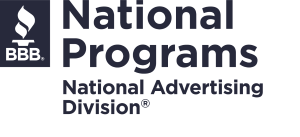
National Advertising Division Finds Certain WhatsApp Express Claims Supported; WhatsApp Appeals NAD Recommendation to Discontinue or Modify Unsupported Claims
New York, NY – October 12, 2022 – CTIA represents the U.S. wireless communications industry, including carriers and equipment manufacturers. CITA members, which include AT&T, Verizon, T-Mobile, Nokia, Intel, Qualcomm, Ericsson, and others, challenged WhatsApp claims that appear in a television commercial titled “Doubt Delivered.”
The National Advertising Division (NAD) of BBB National Programs determined that WhatsApp, LLC provided a reasonable basis for express claims for its WhatsApp messaging service analogizing SMS text messages to “open mail” and that WhatsApp did not overstate the vulnerability of SMS text messages compared to end-to-end encrypted messaging.
However, NAD found WhatsApp communicated certain other implied messages that NAD recommended discontinued or modified to better reflect the evidence, including that wireless carriers are careless; that they read user’s personal text messages; and that “Consumers must switch to a specialized app like WhatsApp to protect their messages from pervasive eavesdropping.” WhatsApp will appeal these portions of NAD’s decision.
NAD has long recognized that although humor can be an effective and creative way for advertisers to highlight the differences between their products and those of their competitors, humor and hyperbole do not relieve an advertiser of the obligation to support messages that their advertisements might reasonably convey.
At issue for NAD was whether the challenged commercial conveyed the misleading message that carriers and third parties routinely read private text messages and whether it disparages the practices, care, and ethics of wireless carriers.
Express Claims
NAD considered whether WhatsApp’s analogy between SMS text messages and “open mail” was supported or whether it overstated the vulnerability of SMS text messages to being compromised as compared with end-to-end encrypted messaging. After reviewing the evidence presented by WhatsApp, NAD concluded that it provided a reasonable basis for the advertiser’s “open mail” claims that:
- “Text messages are just like open pieces of mail, they’re all open.”
- “Every text message that individuals send is just as open as opened letters.”
Implied Claims
NAD considered whether the challenged commercial conveyed implied claims that improperly disparaged wireless carriers and that consumers must switch to WhatsApp to protect their messages from pervasive eavesdropping. NAD determined that the challenged commercial conveyed the implied messages that:
- Wireless carriers, routinely and without consequences, read user’s personal text messages; and
- Consumers must switch to a specialized app like WhatsApp to protect their messages from pervasive eavesdropping.
In so finding, NAD noted that “Doubt Delivered” goes beyond merely highlighting the differences between the advertiser’s product and that of its competitors but instead takes aim at the quality of competing messaging services and at the practices of the providers themselves. NAD found that the overarching takeaway of the commercial is one of casual and persistent snooping on the recipient’s mail – a message that comes through despite – and perhaps even because of – the commercial’s use of humor and hyperbole.
Further, NAD concluded that the commercial conveys the disparaging message that wireless carriers are careless with their customer’s communications.
Because the advertiser did not provide a reasonable basis for these implied claims, NAD recommended that they be discontinued or modified to better reflect the evidence.
NAD found that “Doubt Delivered” did not reasonably convey the challenged implied claims that:
- All messages will be read by wireless carriers.
- The content of text messages is collected by wireless carriers for their own purposes.
- Wireless carriers are dishonest.
In its advertiser statement, WhatsApp stated that it “respectfully disagrees with NAD’s conclusions with respect to certain of the alleged implied claims and will appeal those portions of NAD’s decision.”
Appeals of NAD decisions are made to BBB National Programs’ National Advertising Review Board (NARB), the appellate-level truth-in-advertising body of BBB National Programs.
All BBB National Programs case decision summaries can be found in the case decision library. For the full text of NAD, NARB, and CARU decisions, subscribe to the online archive.
About BBB National Programs: BBB National Programs is where businesses turn to enhance consumer trust and consumers are heard. The non-profit organization creates a fairer playing field for businesses and a better experience for consumers through the development and delivery of effective third-party accountability and dispute resolution programs. Embracing its role as an independent organization since the restructuring of the Council of Better Business Bureaus in June 2019, BBB National Programs today oversees more than a dozen leading national industry self-regulation programs, and continues to evolve its work and grow its impact by providing business guidance and fostering best practices in arenas such as advertising, child-directed marketing, and privacy. To learn more, visit bbbprograms.org.
About the National Advertising Division: The National Advertising Division (NAD) of BBB National Programs provides independent self-regulation and dispute resolution services, guiding the truthfulness of advertising across the U.S. NAD reviews national advertising in all media and its decisions set consistent standards for advertising truth and accuracy, delivering meaningful protection to consumers and leveling the playing field for business.
Contact Information:
Name: Abby Hills
Email: [email protected]
Job Title: Director of Communications
Tags:
CE, Nexis Newswire, Go Media, Reportedtimes, Menafn, IPS, PR-Wirein, Google News, Financial Content, iCN Internal Distribution, Extended Distribution, English